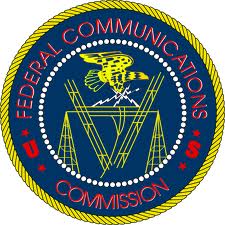By Craig D. Dingwall, Technology Law Group
This is Part II of this article. Please check out Part I, by clicking here.
On March 1, 2015, the FCC released its Net neutrality Rules, which govern the provision of fixed and mobile broadband Internet access service (BIAS). The FCC claims that the new rules are necessary to preserve an open Internet, but time will tell what the new Net neutrality rules actually mean for Internet service providers and consumers, as plenty of questions remain.
The FCC said that it would address complaints on a case-by-case basis, and no wonder. Such broad and subjective terms as “legitimate network management purpose,” “unreasonably interfere” and “unreasonably disadvantage” almost guarantee further questions, litigation and disputes.
Perhaps that’s why the FCC will entertain requests for advisory opinions relating to prospective or proposed conduct, make such advisory opinions available to the public, and periodically publish “enforcement advisories” to promote “legal certainty” regarding the new rules.
The more pressing and fundamental question is whether the new rules will survive further legal challenges. Last year the U.S. Court of Appeals for the D.C. Circuit in Verizon v. Federal Communications Commission, et. al., No. 11-1355 (D.C. Cir. Jan. 14, 2014) vacated the FCC’s anti-discrimination and the anti-blocking provisions of the FCC’s net neutrality rules, finding that the FCC did not have authority to enact such regulations. The Court held that Section 706 of the Communications Act of 1996 vests the FCC with authority to “enact measures encouraging the deployment of broadband infrastructure” and that the FCC interpreted this statute “to promulgate rules governing broadband providers’ treatment of Internet traffic.”
But, the Court found that the Communications Act prohibits the FCC from regulating broadband providers as common carriers having “classified them as in a manner that exempts them from treatment as common carriers.” That is, having previously exempted certain broadband providers as information service providers that are exempt from Title II common carrier obligations, the Court found that the FCC could not regulate them by imposing anti-discrimination and anti-blocking obligations on them. As the FCC explains in its March 12th Order, “absent a finding that broadband providers were providing a ‘telecommunications service,’ the D.C. Circuit’s Verizon decision defined the bounds of the Commission’s authority to adopt open Internet protections to those that do not amount to common carriage.”
The FCC attempts to address the Verizon court’s concerns by crafting rules that classify BIAS as a telecommunications service within the scope of Title II, while forbearing from applying many regulations to it. The FCC noted in its March 12th Order that “[c]hanged factual circumstances cause us to revise our earlier classification” of BIAS, including evolving business relationships among cable operators and their service offerings, as well as a “rapidly changing market” for broadband Internet access services. The FCC also noted that mobile broadband networks are faster, more broadly deployed, more widely used and more technologically advanced than they were in 2010, and that network connection speed and data consumption have exploded.
But do these and other changes justify such a broad change in classification, or are these rules merely a thinly-veiled response to the Verizon court remand and President Obama’s Internet goals? Are the new Net Neutrality Rules a good solution to a problem that needs to be fixed, or are they the problem?
We welcome your thoughts.
Don’t miss Part I, on the framework of the new rules and what they say.
For more information, please give us a call at 202-895-1707. For the latest telecom news and access to valuable original content, please follow Technology Law Group on twitter @TechLawGroup.










